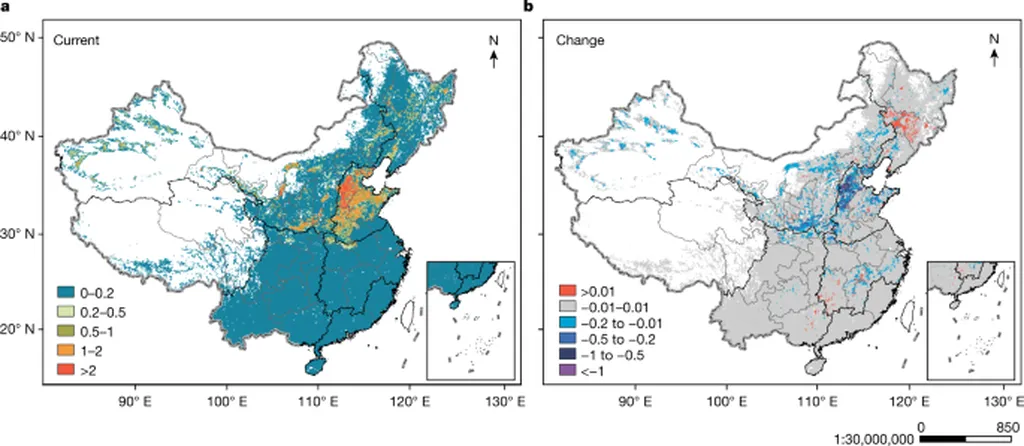In the heart of China’s Anhui Province, a quiet revolution is taking place, one that could reshape the future of agriculture and bolster farmers’ livelihoods. A recent study published in *Smart Agricultural Technology* has shed light on the transformative potential of Climate-Smart Agricultural Technologies (CSAT) on farmers’ incomes and yields, offering a beacon of hope amidst the challenges posed by climate change.
The research, led by Haotian Tong from the School of Management at the Beijing Institute of Technology, employed a robust difference-in-difference (DID) methodology to analyze the impact of CSAT on farm households. The findings are compelling: farmers who adopted these technologies saw a significant increase in both income and yield. This trend held firm even after rigorous robustness tests, including propensity score matching (PSM), underscoring the reliability of the results.
“Our study reveals that CSAT is not just a buzzword; it’s a game-changer for farmers,” Tong stated. The technologies enhanced farmers’ willingness to cultivate both food and cash crops, thereby boosting their income. Interestingly, the benefits were more pronounced for large-scale and experienced farmers, suggesting that the adoption of these technologies could help bridge the gap between small and large-scale farming operations.
The study also delved into the mechanisms and heterogeneity of CSAT’s impact. It found that the combination of technologies within CSAT was particularly effective in increasing food production among small-scale and inexperienced farmers. This dual approach could democratize access to advanced agricultural practices, leveling the playing field for all farmers.
The commercial implications for the agriculture sector are substantial. As climate change continues to pose threats to food production and farmers’ incomes, CSAT offers a viable solution to safeguard and enhance yields. The study’s recommendations at the technology application, design, and diffusion levels provide a roadmap for stakeholders to leverage these technologies effectively.
Looking ahead, this research could shape future developments in the field by encouraging the adoption and further innovation of climate-smart technologies. It highlights the need for tailored approaches that cater to the diverse needs of farmers, from small-scale to large-scale operations. By doing so, the agriculture sector can become more resilient, sustainable, and profitable, ensuring food security and economic stability for generations to come.
As the world grapples with the challenges of climate change, the insights from this study offer a promising path forward. By embracing climate-smart agricultural technologies, farmers can not only mitigate the impacts of climate change but also seize new opportunities for growth and prosperity. The future of agriculture is here, and it’s smart, sustainable, and within reach.

